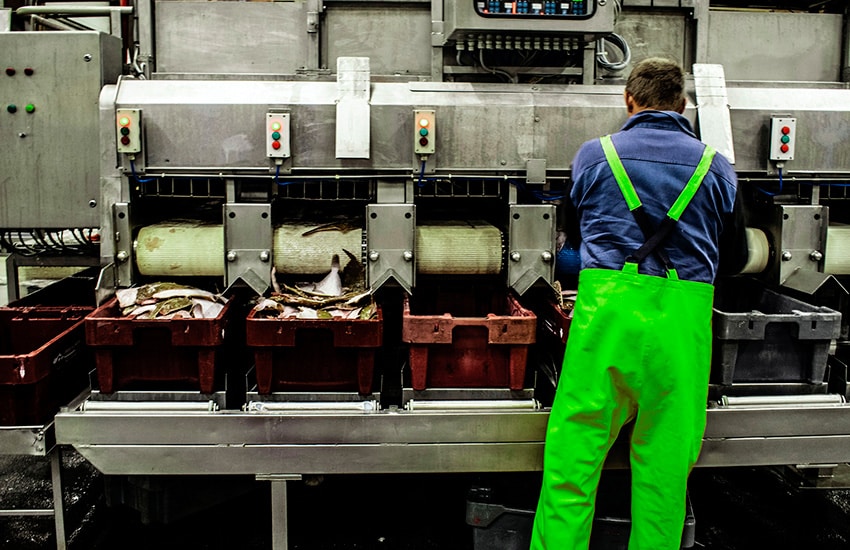13/10/2022
In an era of shrinking budgets, resource shortages, and sustainability challenges, an effective Manufacturing Execution System (MES) is critical for every business. But many companies struggle to find one that delivers the promised benefits.
Specifying an MES, designing it, and integrating it are significant barriers for businesses – but Getronics is breaking them down. GetPro is our advanced MES solution that provides control and clarity for manufacturing businesses in every sector.
We have supported thousands of businesses worldwide to create effective MES systems. Here is what we have learned about choosing an MES system that fits your company.

Understanding MES systems
We can categorise MES systems using their modules and functionalities, integrations, and the data they can display. MES systems can be complex or straightforward. They can be focused on a specific business sector, delivering specific functionalities of a module or layout, or covering the entire market.
While off-the-shelf solutions exist, understandably, each industry and organisation has its own requirements which must be incorporated into an effective MES. However, this can present challenges and create conflicts. For example, suppliers can create bespoke MES systems but may retain ownership of the code – limiting a company’s ability to adapt and improve the system. This can inhibit innovation and reduce the impact of an MES to increase efficiency, cut costs and reduce waste.
Businesses need to make some critical decisions before engaging with suppliers. Here are five essential considerations for every company considering investing in a new MES or replacing a legacy system.
1. Dig into data
Before selecting a vendor or system, spend time understanding the current state of data tracking and the gaps in data that exist. Get granular about all data, including the management of master data and explore options for improvements. Could you also optimise other processes around labelling and traceability?
Understanding your current data environment – defining what you have and what you don’t – is essential. It will quickly become clear where and how an MES can be used to make processes more efficient.
2. Ensure MES System functionality fits
Once you’ve understood your data environment, you can begin to identify the fundamental functionality of your MES.
The essential functionality of an MES includes:
- Master data management
- Role Management
- Tool Management
- Production Order Management
- Production scheduling
- Quality controls
- Machine Operation Panel
- Item management
Any MES system must integrate effectively with your ERP, PLCs, SCADAS and many other systems.
In addition, you’ll need to ensure that the dashboard is simple and clear to understand and delivers actionable insights. Managers and leaders need to understand and action reports, using the data to drive better decisions.
You may find that the core functionality of the system isn’t enough. If that’s the case, it’s time to consider customisation.
3. Consider customisation
Mapping out the flow of data between systems and processes will identify gaps – and opportunities – it’s critical that your MES can deliver.
Customisation isn’t just about the software; it’s down to the supplier too. Unlike others, at Getronics, we work with you to customise your MES – and give you complete access to the code, enabling you to continue to develop and improve the system as your business grows.
4. Build for the future
Successful manufacturing businesses react to the changing requirements of their customers. A flexible and future-proofed MES can help to reduce the time to market or the delivery of products. The system must enable you to adapt rapidly to changes in demand and supply.
Modern MES systems must be able to incorporate AI and Big Data. Instead of being passive in the production process, an MES based on big data and includes AI can anticipate possible events before they happen to reduce the cost of lost production errors.
Organisations incorporating AI and Big Data will quickly establish a competitive advantage, increasing efficiency and cutting production costs.
5. Support, communication, and collaboration
Your MES provider will become an integral part of your team. They’ll be responsible for designing, developing and integrating a system. Once it’s in place, you’ll inevitably have to call upon their help to adapt or improve the system or deal with downtime.
Many companies find it challenging to retain the depth of expertise to develop, secure and manage their IT platforms, and Getronics can help. A core part of our offer is integrating MES systems within your manufacturing environment. We’ll work with you to design and configure the system within your production facility to deliver the insights you require.
If you work with Getronics, you can configure the level of support you require from a partner you can trust.
Build a better MES System with GetPro
At Getronics, we understand the problems and challenges manufacturing organisations face. Every business is searching for ways to reduce delivery time and cut costs without compromising quality. Alongside this, organisations face the challenge of reducing their carbon footprint and pushing toward net zero.
We have a proven history of integrating, automating and optimising MES systems that improve production from raw material to finished items.
Almost 3,000 customers are using GetPro across 110 countries. The system is helping manufacturing businesses to establish a competitive advantage in an increasingly challenging environment.
We’ve developed a four-stage process that provides end-to-end support for your business:
- Advise
- Transformation
- Operation
- Evolution
We understand your production processes are the core of your competitive advantage and enable you to keep all code. This allows you to modify and update the system when needed. Everything is built bespoke for your business and controlled by you. GetPro is the easiest and most cost-effective way of getting the MES system you need.





